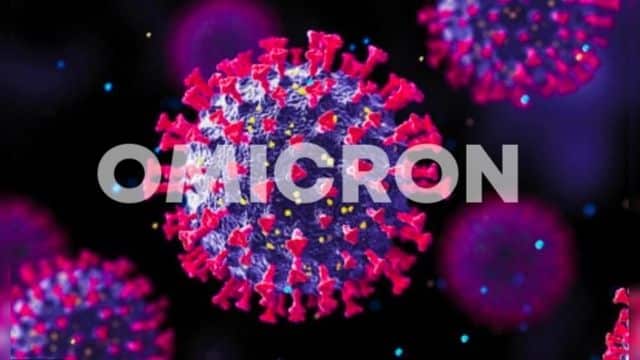The Omicron version of COVID-19 is more transmissible than the Delta variant. However, little is known about its biological properties.
The study on this variation was published in the journal ‘Nature’.
In South Africa, the Omicron form quickly displaced the other viruses, resulting in a surge in the number of cases detected. According to studies conducted in several nations, the doubling time for cases is between 2 and 4 days. Omicron was discovered in dozens of countries, including France, and by the end of 2021, it had become dominant.
Scientists from the Institut Pasteur and the Vaccine Research Institute, in collaboration with KU Leuven (Leuven, Belgium), Orleans Regional Hospital, Hospital European Georges Pompidou (AP-HP), and Inserm, investigated the sensitivity of Omicron to antibodies in comparison to the currently dominant Delta variant in a new study funded by the European Union’s Health Emergency Preparedness and Response Authority (HERA).
The researchers wanted to see how effective therapeutic antibodies, as well as antibodies created by people who had previously been infected with SARS-CoV-2 or who had been vaccinated, were in neutralizing this novel variety.
The Omicron version of SARS-CoV-2 was isolated from a nasal sample of a 32-year-old woman who developed mild COVID-19 a few days after returning from Egypt, according to researchers at KU Leuven. The isolated virus was immediately forwarded to experts at the Institut Pasteur, who studied the sensitivity of the Omicron variant using therapeutic monoclonal antibodies and blood samples from persons who had been vaccinated or previously exposed to SARS-CoV-2.
On the isolated sample of the Omicron virus, the researchers employed quick neutralization assays established by the Institut Pasteur’s Virus and Immunity Unit. The Institut Pasteur’s virologists and experts in viral evolution and protein structure, as well as teams from Orleans Regional Hospital and the Hospital European Georges Pompidou in Paris, collaborated on this multidisciplinary project.
The researchers began by putting nine monoclonal antibodies in clinical trials or in preclinical development to the test. Six antibodies lost their antiviral function completely, and the remaining three were 3 to 80 times less potent against Omicron than Delta. Antiviral activity against Omicron was lost in the antibodies Bamlanivimab/Etesevimab (produced by Lilly), Casirivimab/Imdevimab (created by Roche and known as Ronapreve), and Regdanvimab (developed by Celltrion). The combination of Tixagevimab/Cilgavimab (marketed by AstraZeneca as Evusheld) was 80 times less effective against Omicron than it was against Delta.
“We showed that this highly transmissible mutant has developed strong antibody resistance. The majority of SARS-CoV-2 therapeutic monoclonal antibodies now on the market are ineffective “Olivier Schwartz, co-last author of the paper and Head of the Institut Pasteur’s Virus and Immunity Unit, said.
The blood of patients who had previously been infected with COVID-19 collected up to 12 months after symptoms, and that of people who had received two doses of the vaccine obtained five months after vaccination, scarcely neutralized the Omicron variety, according to the researchers. However, one month following immunization, sera from people who had received a Pfizer booster dose remained potent against Omicron.
In cell culture experiments, however, five to 31 times more antibodies were required to neutralize Omicron than Delta. These findings offer light on the vaccinations’ continued usefulness in preventing severe forms of the disease.
“The length of protection provided by the booster dose must now be investigated. The vaccines are likely to grow less efficient at protecting against the virus, although they should still be useful against severe strains “Olivier Schwartz elaborated.
“This research reveals that the Omicron variation reduces the efficacy of vaccinations and monoclonal antibodies, but it also highlights the ability of European scientists to collaborate to find problems and possible remedies. While KU Leuven was able to describe the first instance of Omicron infection in Europe utilizing the Belgian genome surveillance system, we were able to complete this work in record time thanks to our collaboration with the Institut Pasteur in Paris. There is still much work to be done, but thanks to the European Union’s Health Emergency Preparedness and Response Authority (HERA), we have clearly reached a point where scientists from the best centers can work together to gain a better understanding of the pandemic and manage it more effectively “Emmanuel Andre, a Professor of Medicine at KU Leuven (Katholieke Universiteit Leuven) and Head of the National Reference Laboratory and the COVID-19 genome surveillance network in Belgium, commented on the study.
The scientists concluded that the Omicron variant’s numerous mutations in the spike protein allowed it to mainly elude the immunological response. The current study is underway to investigate why this variation is more transmissible from one person to the next, as well as to assess the long-term effectiveness of a booster dose.







































